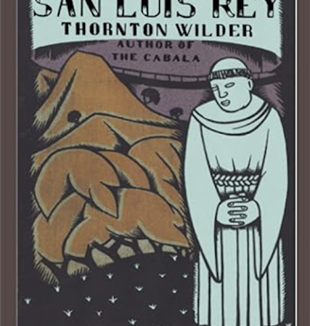
The Profound Sense of A Failure
A review of the book The Bridge of San Luis Rey by Thornton Wilder. (Published in the November issue of Tracce)The bridge had been there for who knows how long. A span of little slats strung together by vines, like those you would see in an Indiana Jones film. One day, the bridge breaks while five people are crossing it. A friar, Brother Juniper, observes the tragedy by chance, and a question comes into his naive mind: why those five exactly? Either human life unfolds by chance, or, if a divine design exists, we can retrace it in the lives of these people. So begins for Brother Juniper an interminable collection of documents, even the most insignificant particulars, in search of the meaning of the bridge’s collapse. This is the brilliant idea that Thornton Wilder, at age thirty, will transform in 1927 into one of the most vivid, most original, freshest novels of the twentieth century, The Bridge of San Luis Rey. The project of Brother Juniper will fail (as expected): “The art of biography,” observes Wilder, not without a touch of irony, “is more difficult than we usually think.” But there is a deep meaning in this failure, and it is also the meaning of the whole book.
The structure is genius and will be imitated by others after Wilder, for example, in The Corrections by Jonathan Franzen. The chapters each follow one or two of the characters involved in the collapse of the bridge, plus a final chapter. They are not isolated lives; the biographies intertwine, enrich and contradict each other. There are no signs of coherence: reality escapes theological models; life emerges richer than ever from the research. And yet the questions of Brother Juniper do not end up in the void, nor do the lives of the poor victims. The conclusion is brilliant but not spelled out for us. Wilder does not “say,” does not declare, but rather “sends word.” The freedom of the one reading is necessary.
Just one hint. In these tragic days, death accompanies our lives continually, sometimes touching us firsthand, more often accompanying our lives in the daily news from the moment we turn on the car radio in the morning. Thus the experiences of rupture, of an absurd mess, multiply: death is like a sentence interrupted in the middle, and to tell the story of a life means to try to guess the piece of the sentence that is missing. We have to decide if that missing piece of the sentence exists or not. In other words: are we born to die, as some philosophers have said, or are we born to be born, to the point that, even while we are dying, something begins to live again?